TU Delft students beat the world record for electric car acceleration
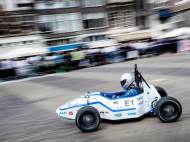 Back in the year 2000, a team consisting out of students mainly from the faculties of Aerospace Engineering and Mechanical Engineering from the Delft University of Technology (TU Delft) joined Formula Student – a testing ground where students develop racing vehicles. The project evolved through time and DUT Racing team recently managed to break the world record for acceleration from 0 to 100 km/h (62 mph) for electric cars.
Back in the year 2000, a team consisting out of students mainly from the faculties of Aerospace Engineering and Mechanical Engineering from the Delft University of Technology (TU Delft) joined Formula Student – a testing ground where students develop racing vehicles. The project evolved through time and DUT Racing team recently managed to break the world record for acceleration from 0 to 100 km/h (62 mph) for electric cars.
Although the team spent the last year to integrate aerodynamics in the overall concept of the car, they decided to use a modified version of the last year’s model which was built for the Formula Student competition where the students won the unofficial World Championship at Hockenheim.
Dubbed DUT12, the compact racing car has full four-wheel drive that allowed the team to build an even lighter electric car since it can now regenerate more energy when braking which results in a lower required battery mass, hence making the car more efficient. Better handling was achieved with battery placement on both sides alongside the driver instead placing them behind the driver.
The DUT12 was also the first car to feature traction control and torque vectoring that allowed it to go faster and more efficient down the track. The car became second in FSUK (competing against electric and combustion cars) and won FSG. Despite the fact it wasn’t built for drag racing, its weight of only 145 kg allowed it to achieve a time of 3.45 seconds at the FSG acceleration event. It’s 0 to 100 km/h time was 2.4s – a time faster than a Red Bull F1 car.
“We made the car a little lighter where possible, but the major difference lies in the electric motors. In the Formula Student competition, they were only allowed to produce 114 horsepower. The motors we used now are actually much more powerful, which means we had to limit them during the race”, said Gihin Mok, one of the TU Delft students responsible for the car development. “Now we used the maximum power. That totals 135 horsepower, about 33 horsepower per motor and almost one horsepower for each kilogram of weight.”
The record attempt took place on September 20th on former airfield Valkenburg. A home-made tire warmer, made from an old oil barrel, ensured that the tires were heated at the start. Even the racing driver was changed to achieve the fastest possible acceleration. Marly Kuijpers, 24, is the lightest member of the DUT Racing team. During the official competition, she had already achieved 2.5s for acceleration from 0 to 100 km/h.
“We thought that under these conditions we’d be happy with 2.3, but we really didn’t expect 2.15”, said Tim de Moree, DUT Racing team manager.
Although 2.15 seconds for 0 to 100 km/h (62mph) makes it the world record holder for electric vehicles and it managed to surpass the 500 horsepower Ariel Atom V8, which clocked a time of 2.3 seconds in 2010, it still has another record from 2002 Lingenfelter Chevrolet Corvette which achieved 1.97s in acceleration from 0-60 mph (roughly 2.04s for 0 to 100 km/h) to beat in order to be the fastest accelerating street legal car.

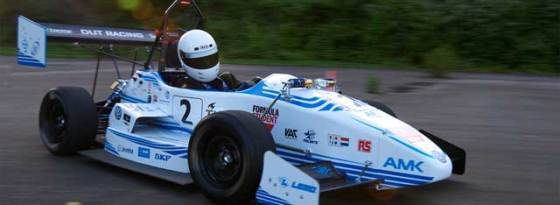
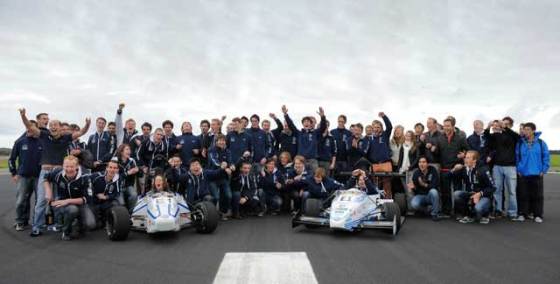






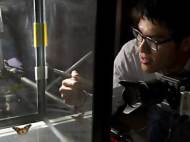
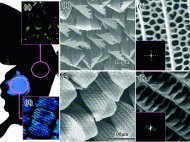
Great achievement, and it’s done by students. It brings back hope that new generations could actually make a change.